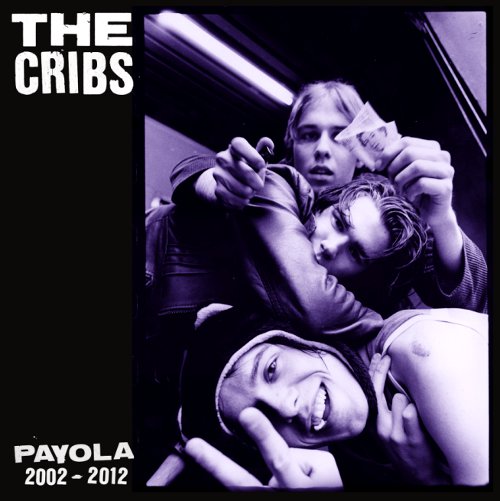There’s a delightful incongruence when it comes to assessing The Cribs’ position in the British rock canon. Initially lumped in with The Libertines by a complacently fervent music press, hungry for a post-millennial coda to Britpop, they’ve gone on to show that they don’t sit nicely within any of the alleged movements of the last decade. For The Cribs, the narrative arc was never as clear – or as self-consciously constructed – as it was for Doherty, Barât, et al, however they’ve managed to stand the test of time with significantly more skill, sidestepping headlines (save for Ryan Jarman’s clockwork-reliable hi jinx) and quietly going about the business of what they do best; making intelligent, biting guitar pop music.
Indeed, armed with a sharp self-awareness from early on, they crystallised their position on the fringe of British indie with a forceful disavowal of the cliquey musical landscape as they saw it in 2005 with the angular, Fall-esque post-punk of ‘Hey Scenesters!’ Since then, they have lacked a tangible visual style, and they haven’t been backed by the marketing £s bestowed upon many of their counterparts. Nor, thankfully, have they pretended to hold any mandate to save British rock and roll. And so while The Cribs have been a strangely ubiquitous presence, they always seem to be standing just out of shot. It feels odd, therefore, to be writing about what is, essentially, a greatest hit compilation when it seems like they’re only really getting going in earnest.
From the cool, dark shade of the periphery, however, the Jarmans have been improving steadily, growing in confidence all the while, and this collection may be the perfect way to consume the output of a band that have struggled, in truth, with consistency. Each of their first four albums suffered from a frustrating flabbiness until last year’s Steve Albini-produced In The Belly Of The Brazen Bull marked their first truly great full-length. And it’s the singles from that album – the incendiary ‘Anna’, the Weezer-meets-Pixies grunge anthem ‘Come On, Be A No-One’ – that stand out as the most perfectly-rounded jewels in its crown.
However, as the record flicks forward and back through the finest cuts from an admittedly patchy oeuvre, it’s a genuinely illuminating experience; one that demands a re-evaluation of the work as a whole as the music moves through punk, pop, new wave and shoegaze with subtle ease. The collection, it should be remembered, is touched by the hands of Albini, Alex Kapranos, Edwyn Collins and, of course, the fourth Jarman, Johnny Marr. As the dramatis personae enter and exit it serves as a reminder of the range of sonic terrain that the band have covered.
It’s in its flashes of poetry, however, that The Cribs’ work really excels. ‘I’ve Tried Everything’, for example, reminds us that the Jarmans possessed a laser focus on the minutiae of love and loss as far back as 2007, transporting us from an industrial 1950s Wakefield to present-day heartbreak, as delivered in a carriage on the London Underground: "But I found out the night we rode the Circle Line". As well as being a radio-friendly, delicious slice of jittery guitar pop, it should also be noted that the anti-chauvinism of ‘Men’s Needs’ represents a brave statement, a lone voice set to a testosterone-tinged backdrop.
As with any of these collections, there’s the inclusion of the inevitable unreleased track. However, while ‘Leather Jacket Love Song’ doesn’t showcase anything startlingly new, it serves to distil the qualities that are present within the rest of the songs; an elegant, imagistic attention to detail in its lyrical observations, a playful self-deprecation, and a wistfulness for that intangible something better: "Boxes and drawers hide all of our memories/ In case I need to live my life again."
When the Jarman brothers had a plaque unveiled in their honour in their hometown a couple of years ago, they chose not to attend. Shortly after, a visibly confused Gary Jarman commented: "When the city of Wakefield awarded us this pavement plaque it was kind of a surreal thing. We always felt like outcasts in that city, really." In many ways his response sums up a career that has been characterised by an uncompromising – and at times frustrating – decision to beat their own path and an endearingly unassuming approach to the making of music and all its trappings. But for all their hits and misses over the last ten years, Payola suggests that The Cribs, in their own quiet way, may just have been becoming a minor national treasure.


